Foster care provides vulnerable companion animals with a second chance at a healthy, safe and happy life. It is also one of the most rewarding things a person can do for these deserving creatures.
Please read and share Norwegian Heidi Hobaek’s story about her experiences as a foster care volunteer for SAFE (Saving Animals From Euthanasia) Inc. in Western Australia.
By Heidi Hobaek
I knew no one when I arrived in Karratha in May last year.
Then I found SAFE (Saving Animals From Euthanasia), where I met not only my soon-to-be friends but got to work with one of my great passions – animals – and, in particular, animals in need.
Working as a volunteer foster carer for SAFE makes me feel good and provides meaning to my life in Western Australia.
Many companion animals are born without families, advocates or others to fight for their deserving chance at a healthy and happy life.
What I love about SAFE are its policies of zero euthanasia and a cage-free life for all companion animals.
Every animal deserves a second chance. Most of us humans live a pretty good life, with all of our needs met – and then some. Why not take the opportunity to share the good life with animals that really need love, affection, security and stability?
My partner and I have been foster carers for 10 or more cats during the past 11 months. Even the most timid ones will eventually lie next to us in bed, purring loudly, rubbing against our chins and pawing us. Some even nibble our fingers excitedly!
My motivation is to get them purring with three strokes and to be socialised within their boundaries, so that they have the chance to become someone’s furry baby – or the last piece in completing a family.
All of our foster cats have been individuals. Like us, they are born with different temperaments and qualities.
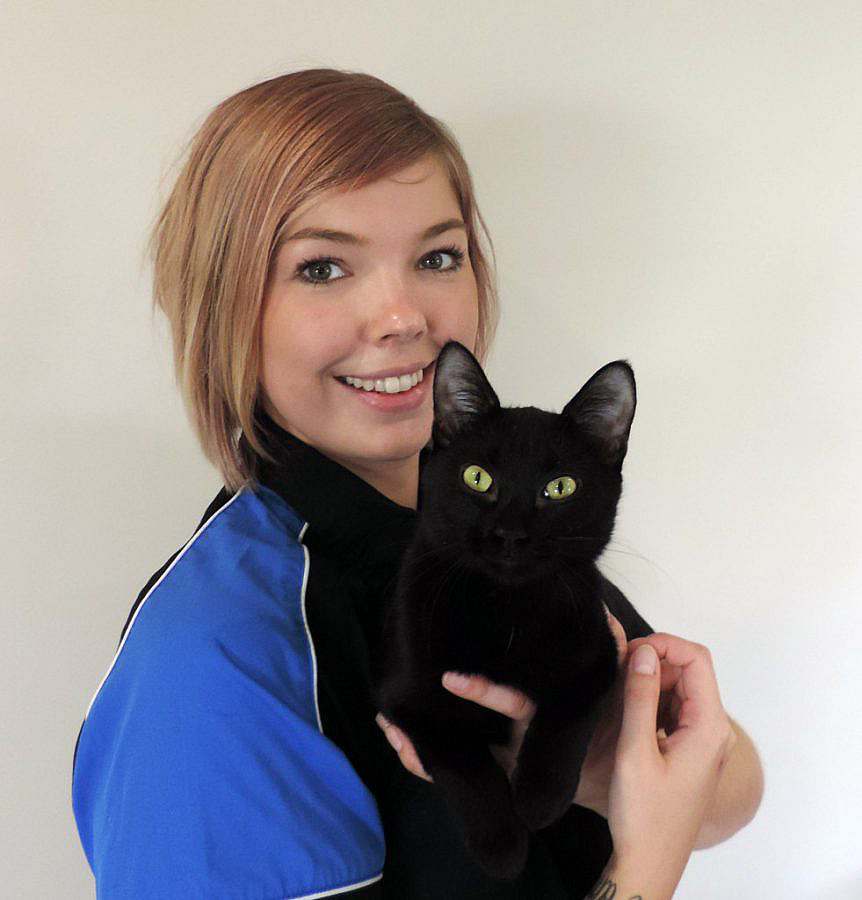
A kitten that comes in with puncture wounds from a bigger animal and soils herself on what might be the first encounter with people, and is also malnourished, will most likely not be a cat that rubs up against people during your parties. However, that does not mean that this cat is not able to provide loyal and rewarding companionship with lots of cuddles. You just have to find the right match and be patient.
There is a cat or dog waiting for every type of person. They will make your life healthier, longer and happier – and you are doing something for the greater good outside yourself if you choose to volunteer, foster or adopt.
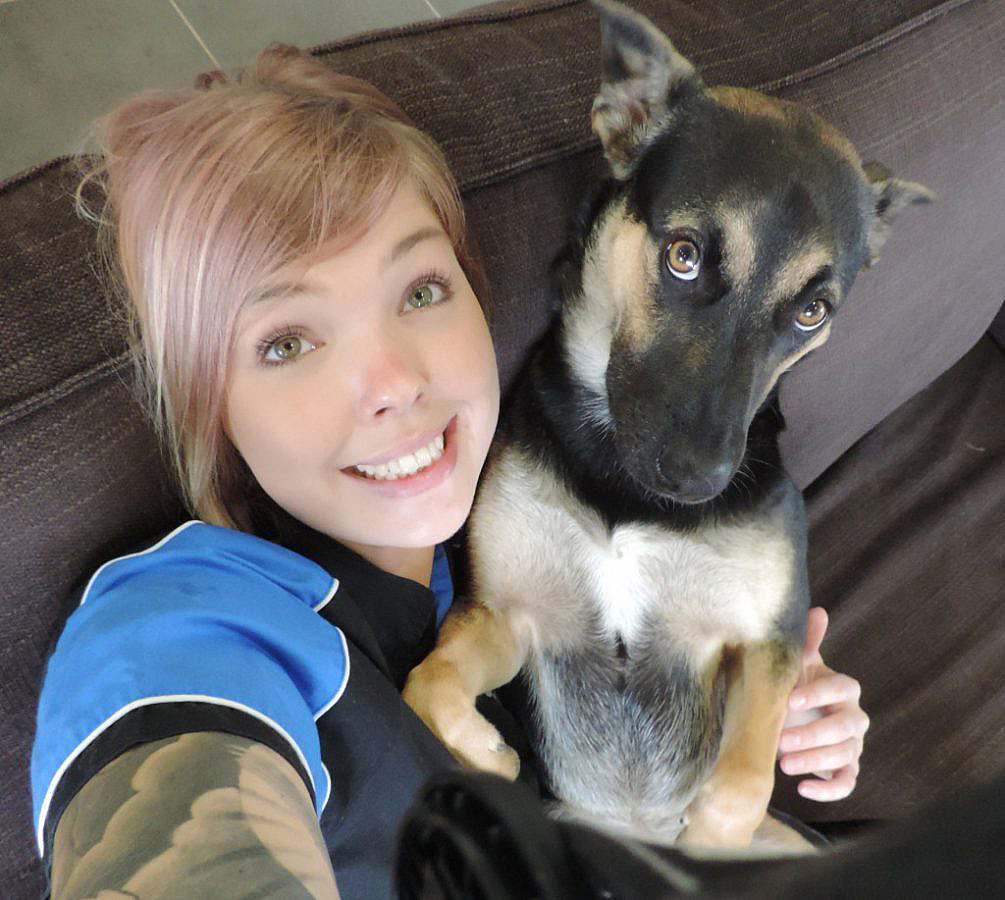
We adopted our beautiful girl Shilo (a one-year-old kelpie cross) from SAFE and now we cannot imagine life without her. She made us into a little family of three (plus the two or three cats in our foster care).
Shilo will eventually go back with us to Norway and we are looking forward to taking her out hiking in the deep forests and skiing during the winter.
I have a cat waiting back home. She is currently living with my parents and will turn 20 in July. I can’t wait to see her again.
I would like to give a personal shout out to all of the people I have been in contact with who have adopted animals in my care. They have turned out be beautiful people with such big hearts. There is a lot of love within Aussies.
I encourage you to get in involved with companion animal foster care and adoption in any way you can. You will not regret it and you will be doing something for the greater good!
Go to http://www.safe.asn.au/cats_in_karratha.htm to see some of the cats – and other companion animals – currently available for adoption from SAFE Inc.
More information about how you can foster or adopt a companion animal
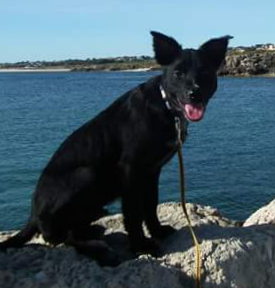
The quest to make a positive difference to the welfare of companion animals is never easy.
Many Australians, including hundreds of selfless volunteers, work tirelessly at animal re-homing centres around the country to achieve outcomes that improve the lives of these animals.
So, when we achieve a significant and meaningful outcome, it is worth celebrating those who have helped us along the way.
Animal Welfare League Australia launched the Beyond 100 campaign in late January to help the vulnerable companion animals of Broome, Western Australia.
Many of these creatures exist in terrible conditions, suffering starvation and mange as they roam the town’s streets disowned or unsupervised – only a short distance from one of Australia’s best-known tourist destinations at Cable Beach.
So many of the animals are not desexed. Nor are they microchipped.
Many people in the community care deeply about this tragedy but are powerless to help, simply because the problem is so big.
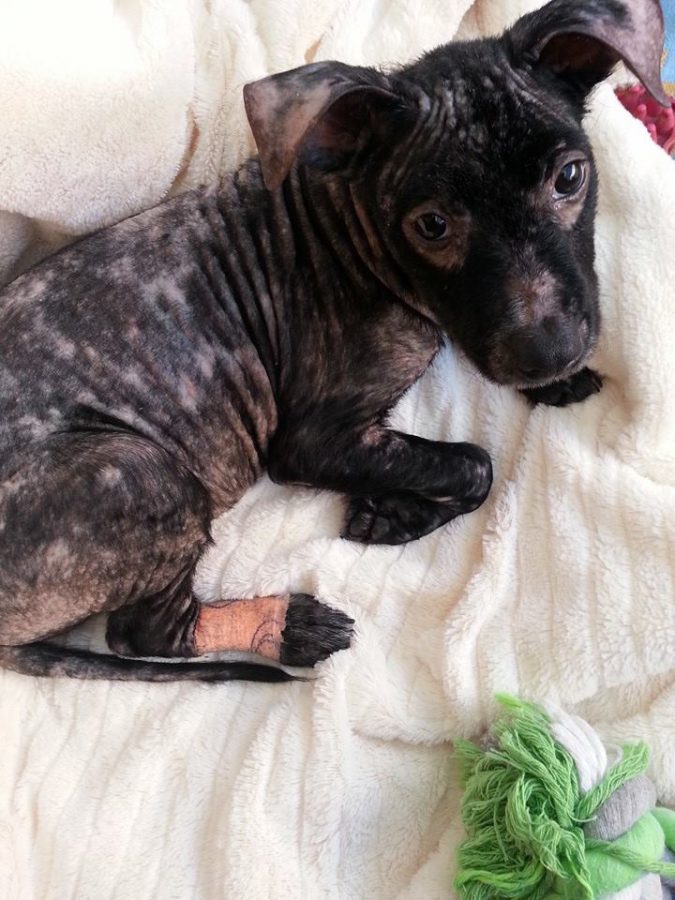
The nearest animal inspectorate is many miles away in Geraldton and local shire resources are stretched.
Many of the town’s pet owners simply can’t afford the cost of desexing and microchipping, or they lack the information and education to care about the welfare of these poor animals.
Cruelty is not always deliberate.
The Beyond 100 campaign was our national response to a cry for help from the Broome community.
With the generous assistance of the Broome Veterinary Hospital and the local branch of our West Australian partner organisation, Save Animals From Euthanasia (SAFE Inc), we set out to desex and microchip 100 vulnerable animals.
But that wasn’t enough, so we turned to the Australian public through our crowdfunding campaign http://pozible.com/beyond100.
The response was incredible!
Pledges came from around the country, with so many contributors eager to make a real difference.
In 60 days we exceeded our fundraising target by nearly 20 per cent, an outcome that will enable us to desex and microchip more than 120 animals overall.
This sort of generosity shows that everyone, no matter how small their contribution, can make a lasting and positive difference to the welfare of animals around Australia.
From all of us at Australia CAN, thank you for your pledges of assistance. We are humbled by your generosity.
Foster care is an important and invaluable way of giving shelter animals and rescued animals a second chance at life.
It also delivers a range of benefits to the foster carer, as well as the pet.
Foster carers give these animals the opportunity to temporarily spend time in a safe and loving home environment; to experience, enjoy and learn from the care and attention that is lavished on pets with permanent homes. This nurturing and loving support is provided until the shelter animal is ready to be adopted.
The number of shelter animals and rescued animals is growing and the need for more foster carers is greater than ever. Every animal in a foster home is one less that shelter staff and volunteers need to assist, creating a greater capacity for other animals to be welcomed into care.
If you're wondering what it's like to experience the sense of accomplishment that comes from being a foster carer, Sally Gartside and Ebony's story (below), will warm your heart.
For more information on How To Become A Foster Carer, visit our state partner Shelters and Animal Rescue organisations:
AWL NSW Lort Smith AWLQ AWL SA Dogs Homes of Tasmania SAFE Inc
By Sally Gartside
It is 11 months since I failed. But it all began 16 months ago when Lisa in the foster house asked if I would take a nine month old cat, Ebony, who found herself at the AWLQ with a collar wound. “Sure” I said, which I’m sure they would tell you is my usual response when there is a cat in need.
I didn’t actually ‘meet’ Ebony till I got her home and settled in – what a shock! I had never seen such a large wound on a young cat. I’ll spare you the gruesome details but it started in the middle of her chest, under her arm and back up towards her shoulder. Ouch!! She was in for a long recovery process.
Ebony was a star and we soon got into a routine of cleaning and applying her medicated cream two or three times a day. She would see me get ready and she would come over and lie down at my feet, waiting. She responded very well and settled into life at our house, happily resting with my dogs and making herself at home over the next several months.
Me and my beautiful Ebony
Regular visits to the vet meant that she was a bit of a favourite with all the vet and foster staff. While her wound was healing well, a small section right under her arm would not completely heal due to the amount of scar tissue and movement in the area. The vets tried different approaches but nothing worked. Things were not looking good for her but I think they saw the bond that had formed between Ebony and me: they didn’t give up, and neither did I.
We kept giving it more time.
After a lot of research, Dr Theresia Anderson, the head shelter vet, performed a miracle. Well, we thought it was pretty miraculous. She went above and beyond for Ebony and successfully performed a new surgical procedure – leaving Ebony half shaved, with a drain, a pain patch and 65 stitches and more recovery time needed.
We missed her – so I visited each day and she would get up to greet me every time. Even the dogs visited her and had a sniff through the window! She was a model patient and got the all-clear from the vet to come home after 11 days in the clinic.
During her recovery, both before and after her surgery, Ebony was a ‘big sister’ to all the other foster kittens that spent time with us on the road to their forever homes. Then the time came – she was ready to go and find her forever family.
But was I ready for that?
My first ‘foster failure’. How could I send her back to the shelter pens when she had been with me for almost six months? She had already been through so much and was so settled and happy with life at our place. She had become part of our family. After her fantastic character won everyone over, both at home and at the clinic, how she coped so well with all she went through (easiest cat ever to medicate!), with the success of Dr TheresIa Anderson’s surgery and the support care of the vet staff, and finally finding her forever home …
All of that, to me, is nothing but SUCCESS!!
Help animals who are suffering on puppy farms by taking action to oppose this Bill:
The Criminal Code Amendment (Animal Protection) Bill 2015
(better known as ag-gag legislation).
WHY:
The Bill seeks to prevent animal advocates and welfare groups from documenting inhumane practices on puppy farms, factory farms and other animal industries.
Under this Bill, the recent exposure of animal cruelty within the greyhound racing industry would likely have been a criminal act.
It attempts to silence animal advocates by imposing extremely harsh penalties on anyone who records evidence of malicious animal cruelty without immediately handing over that evidence to authorities.
Often long-term investigations are required to gather evidence of animal abuse. The requirement under this Bill to hand over footage or photos within one business day reduces the capacity to gather evidence and build a case.
It is nearly always undercover investigations by advocates that shed light on mistreatment and abuse, and help bring about much-needed relief for the animals involved.
Exposing the mistreatment of animals is a service. Cruelty to animals is a crime!
Existing trespass and biosecurity laws are sufficiently robust to deal with undercover surveillance events.
Without surveillance, the public have no meaningful way of being informed about how animals are being treated.
Consumer expectations have evolved to require higher levels of transparency and accountability around animal welfare.
HOW YOU CAN HELP:
Voice your concerns in an email to the Senate Committee responsible for progressing the Bill to the Senate (Senate Rural and Regional Affairs Committee)
Email address: rrat.sen@aph.gov.au. Email submissions are due by March 12th.
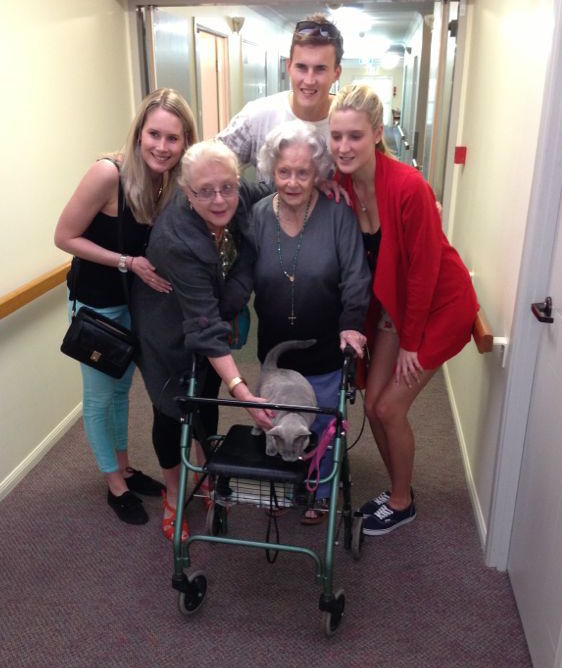
Companion Animal Network Australia’s Positive Ageing in the Care of Animals project continues to reap great results.
Diane Butler recently wrote to tell us how one of the companion animals assisted by our project, a 7-year-old Tonkinese cat called Gemma, brings real and continuing benefits to the life of her mum, Nancy Albon, who resides at the Ozcare Ozanam Villa aged care facility, Burleigh Heads, on Queensland’s Gold Coast.
Here’s what Diane had to say:
Gemma was always a very athletic outdoors cat, so we were always a bit worried about how she would adapt to living indoors. Gemma has now been at Ozanam for over two years and, fortunately, she loves all the attention she gets from the residents and staff. She really enjoys the concerts and bus trips, and she even goes to church with Mum. She is a very blessed little cat.
Gemma sits on Mum's walker and they often go and visit the residents in high care, who respond affectionately when Gemma gives them a little kiss on the hand. She is great therapy for the people who are bed-ridden. Mum is known as the Cat Lady -- but everyone knows who Gemma is.
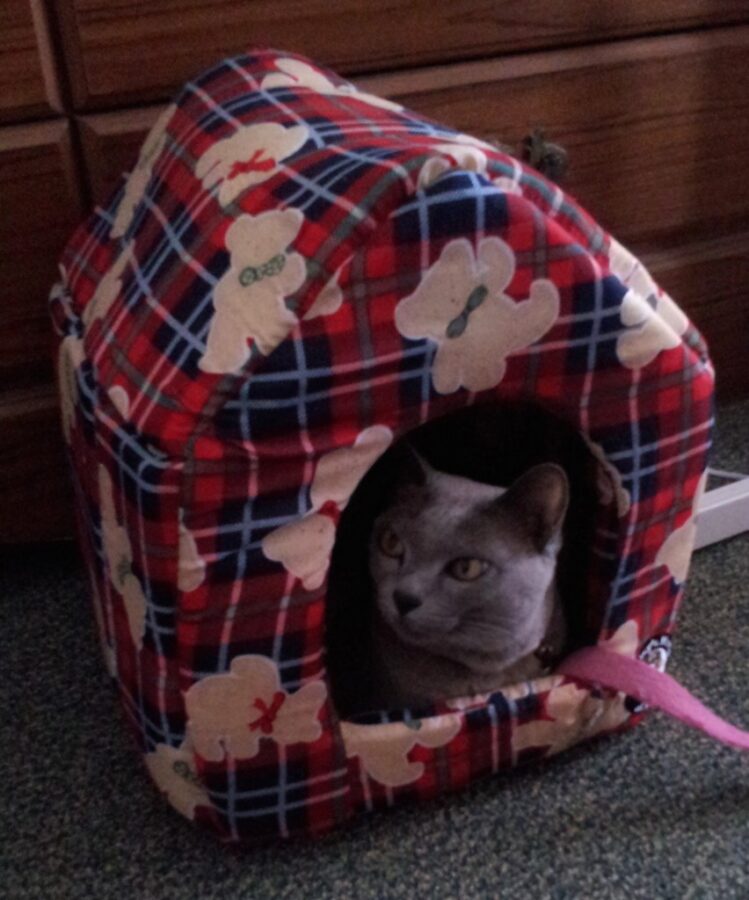
Mum is very content now that she has Gemma for company and they even sit up and watch TV together. Sometimes Gemma likes to play games with Mum, and it’s amazing the places she finds to hide in Mum's room or the wardrobe, as she has worked out how to open and close the doors.
Although Gemma gets plenty of exercise walking on the lead outside, we sometimes send her on a little holiday to the Catarama boarding home where she can run around in an enclosure and climb trees. However this can only be for a couple of days at a time as Mum misses her too much and starts to fret.
The family is forever grateful to Ozanam for allowing Gemma to stay with Mum as she is a great companion and she brings a lot of joy to everyone.
For more information about Australia CAN’s Positive Ageing in the Care of Animals project, go to http://petfriendlyagedcare.com.au/
A large number of Australians describe themselves as ‘animal lovers’.
For many, the term helps to explain their close bond with companion animals such as dogs and cats.
For others, it is a way of expressing the joy and satisfaction that they feel when interacting with wildlife or animals in need of help.
Two South Australian researchers are investigating the perceptions and meanings that we humans attach to our relationships with animals.
Dr Nik Taylor and Dr Heather Fraser of Flinders University in Adelaide say they are keen to dig deeper than stereotypical terms such as ‘animal lover’. They want to know how such people truly feel about their animals and how they describe these relationships.
The study provides the opportunity for participants to represent their stories through photos, poems, videos, paintings, stories and writing.
To this end, the researchers have set up a website where animal lovers can post their accounts, with the emphasis on being creative and having fun.
There have been many amazing posts since the study was launched late last year. Some are sad and others funny, but all of the tales are uplifting.
For example, an animal lover with a psychiatric illness writes about her pet dog: ”When I'm unwell, he stands by me and does not judge. The importance of friendship, love and companionship that my dog provides is beyond words.’’
Typical of many stories is a post headed “I need him as much as he needs me’’, in which a dog owner writes tenderly of the ‘’companionship and therapy’’ that she derives from caring for her pet.
To contribute to this study on the meanings people make of their relationships with animals, you need to be over 15 years of age and respect the welfare and rights of animals.
Visit whatisitaboutanimals.com to find out more.
Introducing Saxon, a beautiful dog who once knew what it was to be homeless and afraid. Now living happily in Tasmania, Saxon is pictured below wearing a Canine Commendation for Service medal, awarded by the Dogs’ Homes of Tasmania in recognition of the hope and joy he brings to kids and staff at Childhood Foundation Tasmania.
Saxon’s award celebrates his gentleness and kindness, helping children and adults feel calm and loved in his presence. Saxon provides hope to all at the Childhood Foundation, teaching trust, tolerance and unconditional love. State Manager of the Childhood Foundation, Caroline Brown explains…
Saxon assists on the ‘counselling team’, helping people on a wide range of issues. In undertaking this work Saxon demonstrates unconditional love and kindness, teaching people about a wide range of emotions including patience, empathy and compassion. He also teaches people about safe relationships and helps them to manage anxiety in home and school settings.
Saxon is in demand by other counsellors who appreciate the way Saxon assists in counselling their own clients. The humans that Saxon works with all love him and request to see him so often that he has his own diary of appointments!
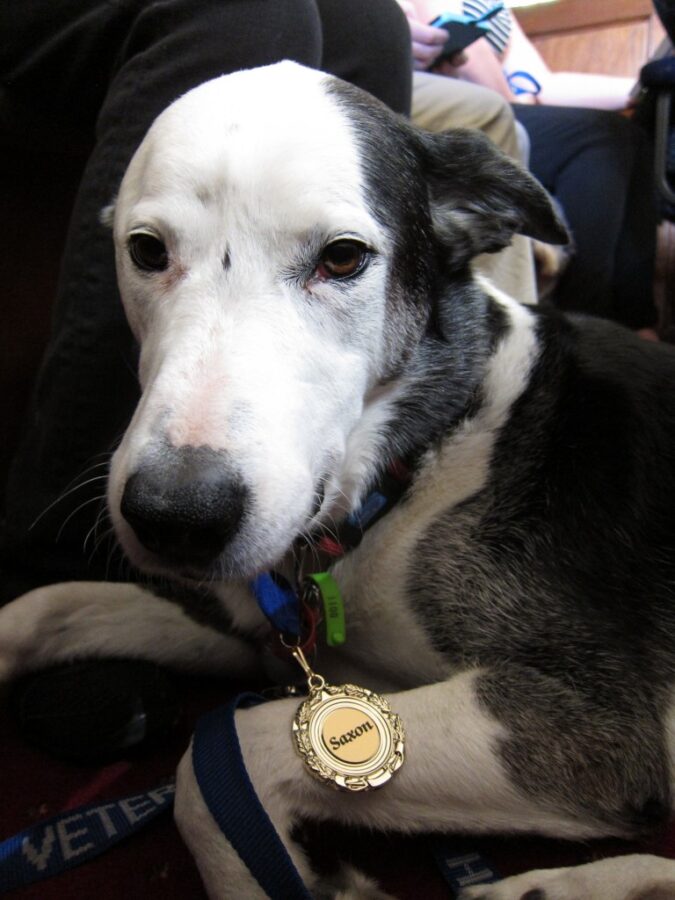
When Saxon is working he comes into the office and he brings with him a calming influence that assists the counsellors and other staff to do what is often difficult and emotionally demanding work. Saxon is a most well behaved and tolerant dog. For example, when we have morning tea in the office he never tries to take food from the table even though it is well within his reach.
He always waits patiently for a little treat to be offered to him, which his numerous “aunties” are more than happy to provide!
Saxon is a valued member of our counselling team and he is a pleasure to have around the office. We are all so proud of his Canine Commendation Award and our thanks go to the Dogs’ Homes of Tasmania for recognising Saxon’s achievements.
Supporting Aged Care Residents and Pets through the
2014 AWLA Pets in Aged Care Grants Program
The human-animal bond can make a powerful difference to the lives and well-being of people of all ages - and it can have a particularly positive and meaningful impact for older people transitioning into aged care accommodation and the next stage of their lives.
Breaking the human-animal bond apart when an older person is going into care can have a considerable impact for both resident and pet. Separating elderly residents from their animal companions when their pets cannot be accommodated in aged care facilities can lead to significant grief at a time already marked by a profound sense of loss and sadness, and lead to a range of health problems, sleep and appetite disturbances and integration difficulties.
Some elderly people in the community who can no longer care for themselves are unwilling to leave their homes because they are not permitted to take their pets with them to supported accommodation. Outcomes for their animals vary, with some animals re-homed, others surrendered to shelters and some euthanased.
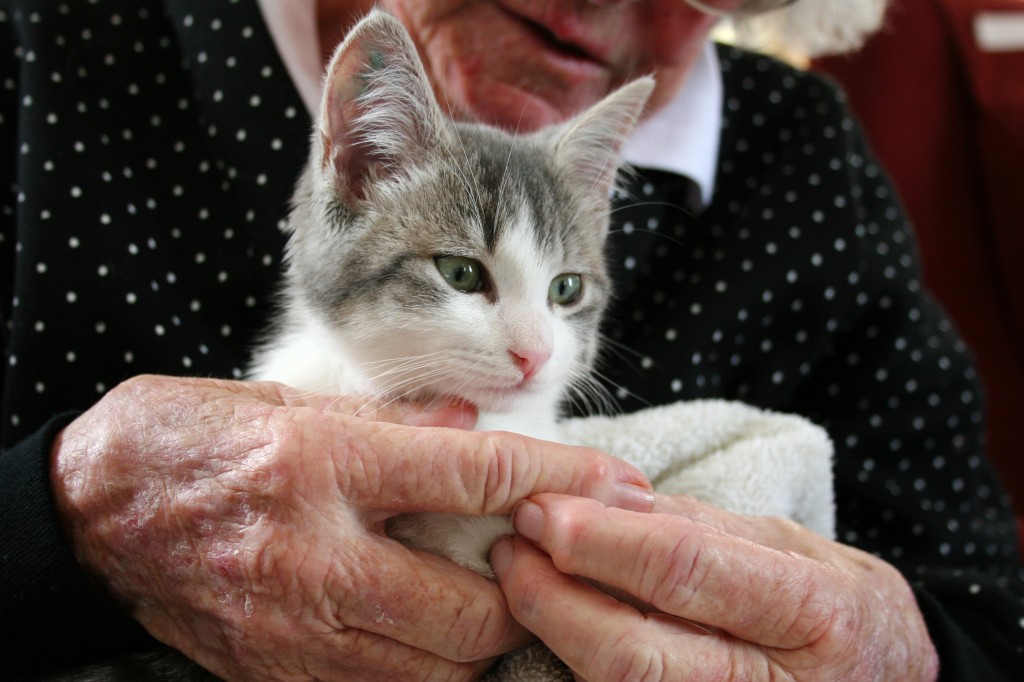 In recognition of the vital role companion animals can play in the lives of aged care residents and the ongoing costs associated with keeping companion animals in aged care facilities, Animal Welfare League Australia developed the AWLA Pets in Aged Care Grants Program - a small grants funding program designed specifically to support aged care residents and their pets.
In recognition of the vital role companion animals can play in the lives of aged care residents and the ongoing costs associated with keeping companion animals in aged care facilities, Animal Welfare League Australia developed the AWLA Pets in Aged Care Grants Program - a small grants funding program designed specifically to support aged care residents and their pets.
The program aims to provide residents with the practical means to cover costs, such as vet bills, grooming, dog walking, feeding, carer support, infrastructure projects or making minor modifications and additions to living quarters and communal areas to enable live-in arrangements.
Earlier this month, we were thrilled to announce the successful recipients of the inaugural AWLA Pets in Aged Care Grants. The grants will go toward a range of innovative and essential pet projects and costs to support aged care residents and their pets in aged care facilities across Queensland, New South Wales and Victoria.
Click here for the full list of 2014 AWLA Pets in Aged Care Grant recipients and projects.
The AWLA Pets in Aged Care Program is part of our broader AWLA Positive Ageing in the Company of Animals Project, which is working to identify successful models for keeping aged care residents and their pets together. As part of our ongoing commitment to supporting the human-animal bond and advocating for the rights of aged care residents to have companion animals, we will be soon be launching an online resource bank for aged care providers and older pet owners.
You can find out more about the AWLA Positive Ageing in the Company Project here.
Speak Up About Animal Testing in Cosmetics
As committed pet owners and lovers, we work hard to make sure our companion animals receive the very best that humans have to offer: nutritious food, adequate shelter, comfortable bedding, thorough grooming, regular exercise and plenty of cuddles.
Sadly, not all animals receive the same loving treatment from their human counterparts. Every year thousands of animals in laboratories around the world experience the very worst that humans have to offer: invasive and painful procedures for the sake of the human beauty industry.
Testing cosmetic products and ingredients on animals is both ethically unacceptable and unnecessary, with a large number of existing ingredients already certified safe for human use, and approved tests available to the industry which do not require testing to be carried out on animals.
While legislation prevents cosmetic testing from taking place within Australian laboratories, many products and ingredients that have been tested on animals around the world still find their way on to Australian shores and into Australian stores, shopping trolleys and homes.
Public and political support to put an end to cosmetics and cosmetic ingredients tested on animals is strengthening across the globe. Bans on animal testing have already been enacted by the EU, and China and the United States are in the process of developing similar legislation.
Potential change is also afoot here at home. The Australian Greens introduced the End Cruel Cosmetics Bill 2014 to Federal Parliament earlier this year, while the Australian Labor Party has instigated a national consultation on phasing out the importation, manufacture, sale and advertising of cosmetics and cosmetic ingredients tested on animals. The consultation process is open to all Australian with written submissions due by 29 August 2014
Animal Welfare League Australia (AWLA) acknowledges political commitment to this critical animal welfare issue and strongly supports a ban on the importation, manufacture, sale and advertising of cosmetics and cosmetic ingredients tested on animals.
Animals can’t speak up for themselves – but we can stand up and speak on their behalf.
TAKE ACTION and make a contribution to the Cosmetics & Animal Testing Policy Consultation today. Hurry, you only have to 29 August to have your voice heard.
It’s no secret that Australians love their companion animals. Research from the Animal Health Alliance shows that more than 63 percent of Australian households own an estimated 33 million pets, and that they spend a collective $8 million looking after them each week – a sure sign of the strong human-animal bond Aussies share with their pets.
Unfortunately, this loving bond doesn’t always stretch to having their pet desexed, or spayed as it sometimes known. Despite wanting the best for their furry friends and being aware of the many health benefits for pets that can result from the procedure, some pet owners still hesitate to have their pets desexed.
There are a number of reasons why pet owners avoid having their pets desexed. Many pet owners believe desexing is important but don’t think they need to get their own cat or dog desexed because they are always kept indoors or on a leash. While this decision makes sense on the surface, desexing can still bring many benefits for indoor pets and their owners. Desexing indoor felines eliminates the unpleasant spraying that male cats will do indoors and reduces the crying sounds that female cats make when they are in heat.
Desexing also plays an important role for indoor dogs and their owners. We all know male dogs will do just about anything to get to a prospective mate. A male dog confined indoors is likely to try and escape to follow his natural instincts, increasing the risks he will roam the streets and get hit by a car, get lost or end up in the wrong hands, while having a female dog on heat in a confined space can bring behavioural changes and bleeding in the house. Desexing can eliminate and reduce these issues, making life much less stressful (and messy) for inside dogs and their human companions and also reduce the risk of indoor dogs developing prostate diseases, testicular cancer, uterus infections and mammary tumours.
Many pet owners want to have their pet desexed but worry the procedure will change their pet’s personality. This widespread myth is just that – a myth. Desexing will not change your pet’s basic personality, although it may lead to improvements in behaviour, playfulness, happiness and focus.
Some pet owners don’t have their pets desexed because they believe their pets are too young for the procedure, whereas early age desexing is readily available and the surgical procedure is actually less stressful on a younger pet. If the surgery can be carried out by the time a pet is four months old, it reduces many health risks and prevents the animal from contributing to pet overpopulation.
Perhaps one of the most common reasons cited by owners for skipping the desexing procedure is the cost of the surgery itself and the impact vets bill will have on their hip pocket. Desexing surgery does come with a cost attached, but popular discount desexing programs, like National Desexing Month which kicks off in July, can help bring the cost of desexing within reach and make surgery more affordable for pet owners. For more information about National Desexing Month, visit www.ndn.org.au
Companion Animal Network Australia is a proud supporter of National Desexing Month and strongly advocates for the desexing of companion animals. Find out more about our policies on desexing.

